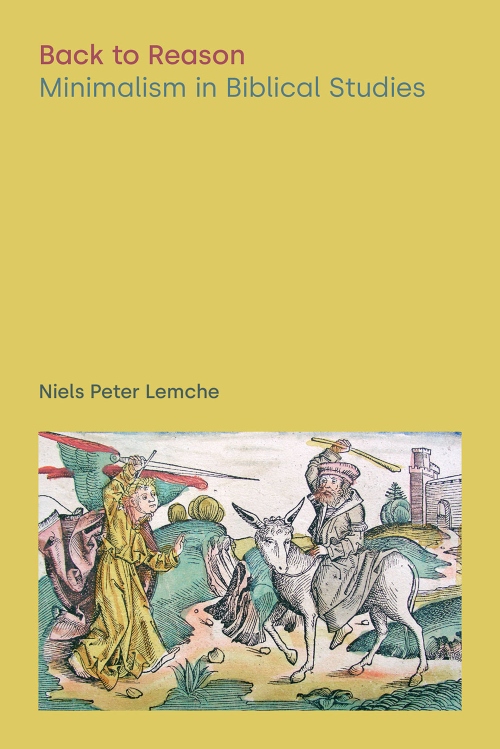Back to Reason - Minimalism in Biblical Studies, by Niels Peter Lemche
This study addresses the development of ‘Minimalism’ from its roots
 Back to Reason. Minimalism in Biblical Studies
Back to Reason. Minimalism in Biblical Studies
By Niels Peter Lemche
Equinox, Sheffield
ISBN 978 1 80050 187 4
Reviewed by Alec Gilmore
In the world of biblical scholarship, Minimalism in Biblical Studies is (literally) the child of the 21st century, the product of a small group of highly qualified Scandinavian Old Testament scholars, with modest support from UK and US colleagues, exposing 'the fallacies of traditional historical-critical biblical scholarship which in their view was neither historical nor critical'.
Take, for example, Bible origins. 17th century Archbishop Ussher’s date for the creation of the earth (4004 BCE) has long been discredited, but the 20th century prevailing opinion on the production of all that followed (Genesis to Malachi) has usually been attributed to the Persian era (4th-6th century BCE) and was 500-800 years in the making.
Now, some scholars (including Lemche) tend to see the Old Testament more as a Hellenistic product (4th-1st century BCE).
Or consider scholarly accuracy and a questionable preoccupation with historicity, as demonstrated in the handling of Ancient Israel by 20th century scholars. Current evidence suggests the biblical account of Ancient Israel we all grew up with never existed, leaving us with two histories for one nation: the real one and the one we grew up with, which now turns out to be a scholarly construct creating a feasible story from slender resources as a foundation for the familiar narrative.
Add to this the fact that there is no external or corroborative evidence for anything in the Bible, not even the Ten Commandments. The first physical evidence of Hebrew books and of the books of the Old Testament are the Dead Sea Scrolls (usually dated c.1st century CE) which only came to light in the 1940s.
Some (almost) throwaway lines will raise eyebrows as events we thought had happened a few thousand years ago may never have happened at all, or at least not in the way they have come down to us. Ancient Israel for instance holds centre stage for now, but other problems hovering in the wings may find themselves at the source of further attention for similar treatment.
Specialists will have seen much of this coming and have their own views and an appropriate response, but for most of us that can be put on hold since it is too soon to speculate as to what it might be. Meanwhile, practising preachers, pastors and teachers will want to hold their breath to see what the pundits come up with, leaving 'the Man on the Clapham Omnibus' in the pew with one or two headaches wondering just what to believe.
Finally, there are two particular myths (dragons) that need to be slain. The Bible is neither a History Book nor a Manual of Morals and Ethics, but if Minimalism stimulates pulpit and pew to think again about about how to read it that can only be a bonus.
Last word. There are rich pickings here and more to come, but start in the shallow not the deep end, and with a fully qualified tutor.
Alec Gilmore is a Baptist minister
Baptist Times, 24/11/2023